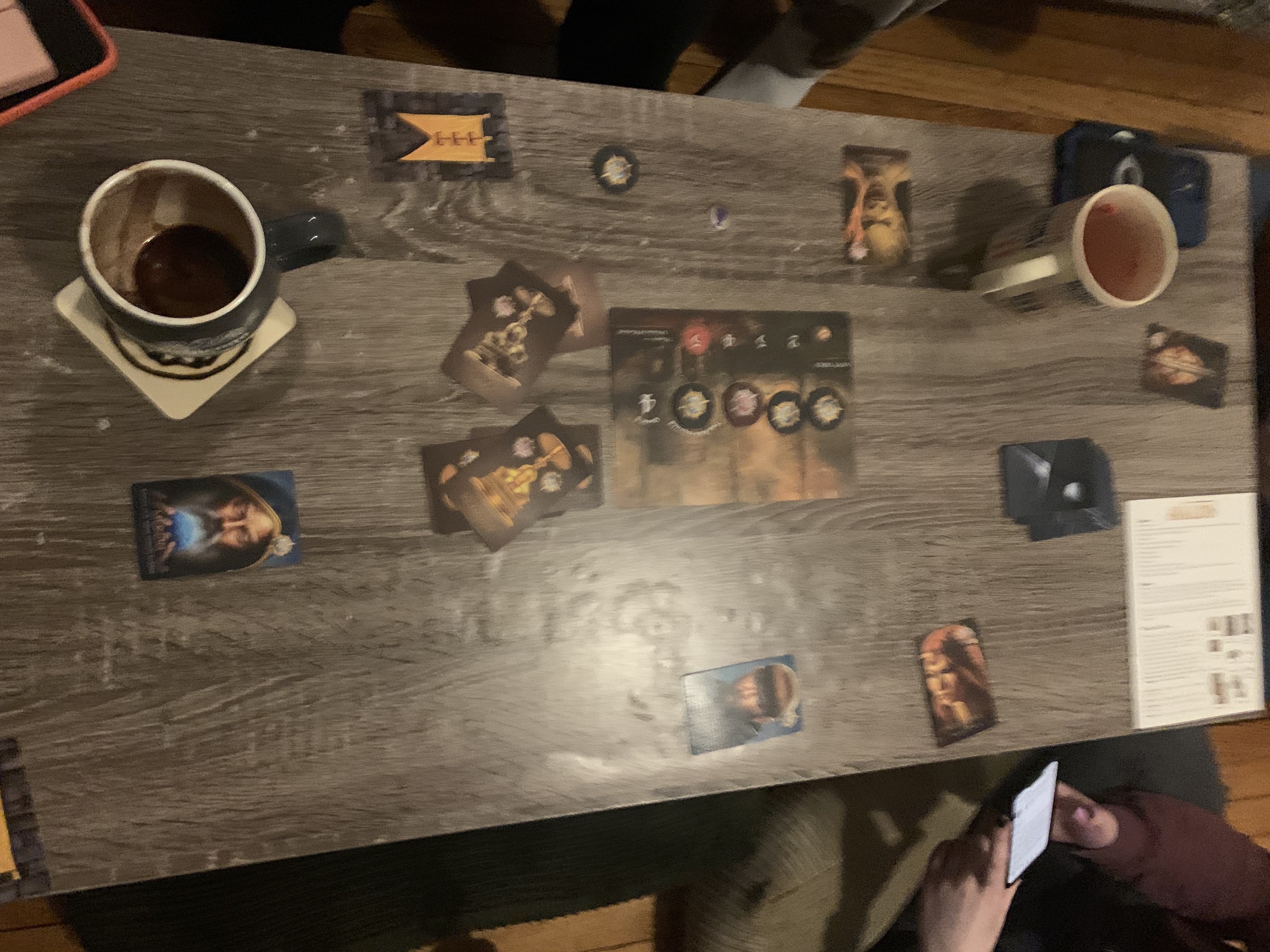“Paul is obviously not the spy, he’s sitting in a chair.” “Yeah that makes sense, I trust it.”
Avalon is a fast-paced, competitive social deduction game. There are two teams: servants of Arthur (referred to Loyalists) and minions of Mordred (which our group calls spies.) Each round a leader (which rotates each round) chooses a team of people to go on a mission. Loyalists have to play a success but Minions can play a fail or a success. The best of five rounds win the game. There are special roles such as Merlin who knows who the Minions are but cannot be found out or the Minions win. A crowd favorite is Oberon who is a Minion but he doesn’t know the other Minions (and they don’t know him either.)
Avalon was a huge hit back in my first year at UChicago. We would have nearly nightly sessions of Avalon in the house lounge. Sadly because of Covid and moving off-campus, it had been three years since our last game. But this opportunity was great to get the band back together and play a certified May House Classic. But what parts of the game made it so popular in our group?
Player interaction is a huge part of Avalon. You have to communicate with everyone at the table to uncover the Minions or cover your tracks as a Minion. Fresh off the press of O-Week, we had social skills comparable to a mango and so having a game that facilitated discussion was a great way to discover each other’s mannerisms and social habits. I was quickly established as a perceptive force of chaos while another was established as completely unable to lie. Failure is incentivised because of the face-paced nature of the game. It was encouraged to take risks because rounds could be as short as ten minutes.
To have such fast-paced gameplay the rules had to be streamlined. And Avalon did this masterfully. A best of five format is easy to understand. Don’t choose the Minions and you win. But Avalon isn’t just simple, it has a lot of failsafes that are healthy for the game. The best of which is the voting system. Once the leader chooses a team, everyone votes to approve or disapprove with the majority winning. If the vote fails five times in a row, the Minions win. This encourages Loyalists to take risks to trust each other because it is entirely ‘he said she said’ until missions actually occur. Another example of a failsafe is the leader passing around each time a vote is held, this simple maneuver prevents either team from having too much control at any given time as opposed to other systems which have a designated leader for the whole game or a set part of the game. It also allows players to all have a chance at being the leader, especially if you play multiple games. But with such a simple and some may say repetitive gameplay loop, how is Avalon fun and replayable?
Avalon is fun because of how moddable it is. There are several different roles that are completely optional. By having them be optional, new players aren’t forced to jump in the complexity of each role but veterans can discover combinations of different roles. Additionally, every player will handle each role differently as well as play differently depending on the players on their team or in their game. My favorite memory of Avalon was when my friend and I were both Minions and we agreed to expose one of us so that the other one could win the trust (and eventually backstab) the Loyalists. The game being simple to understand and play allows for intricate interactions between different players which is what I believe to be why it stuck around for so long in our group.
